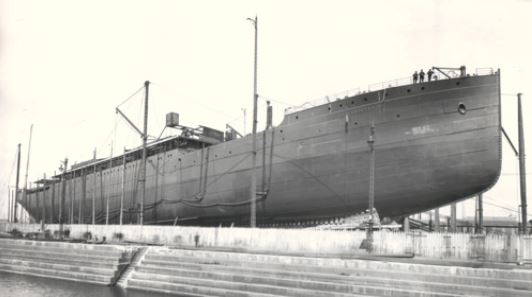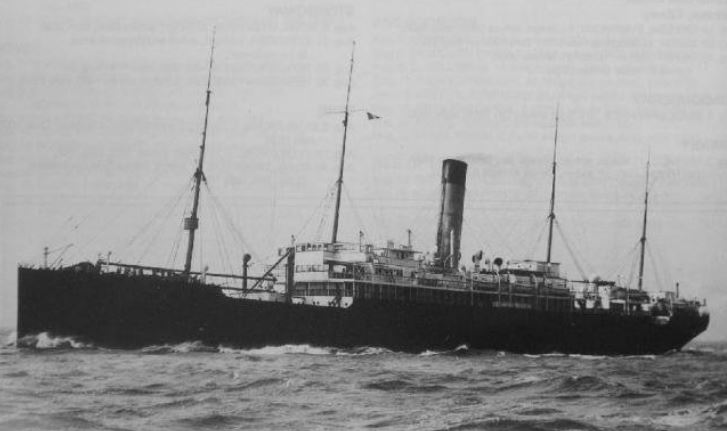SS Leicestershire
From Our Contribution
Contents
[hide]Remarks
Built for the Bibby Line to carry 230 single class passengers on the UK Burma route. In August 1914 she was requisitioned for trooping of the Indian Expeditionary Force and carried Indian and Burmese troops to the Persian Gulf before reverting to Bibby services in the following November. Taken over under the Liner Requisition Scheme in March 1917, she served on the North Atlantic, although two voyages were made for Bibby's during that time. In 1918 she carried troops to North Russia to assist the White Russians before repatriating Australian soldiers in early 1919.
She was refurbished by Harland and Wolff in 1919 during which time she was converted to oil burning before resuming on the UK - Rangoon route until 1930. In 1930 she was sold to the British National Exhibition Ship Company, renamed British Exhibitor, and refurbished for her new role by Cammell Laird & Company of Birkenhead. During 1932 she was laid up at Southampton before she was purchased by the Egyptian Company for Transport & Navigation who renamed her Zam-Zam for use on the Egypt to Jeddah service. Her ownership changed in 1934 to Societe Misr de Navigation, Alexandria.
She was laid up at Suez in October 1939 before retunring to the Alexandria - Cape Town - New York route in February 1941. On 21 Mar 1941 she sailed from New York for Recife to embark 202 passengers. On 17 Apr 1941, despite being a neutral ship she was fired on by the German raider Atlantis whose Captain recognised her as a Bibby Ship design and decided that she was a disguised troopship. Hit by 55 shells and later by three scuttling charges placed at the waterline, she was sunk with the loss of 24 lives. The survivors were taken on board the German supply ship Dresden which carried them to St Jean de Luz, France. A newspaper of the day reported that "One hundred and forty-eight American passengers, including 24 men headed for ambulance service in Africa with the "Free French," have been landed at two places in France".
Soldiers carried
Liverpool to Fremantle 10 December 1918 - 15 January 1919
Troops boarded this vessel on the 9th.
- Stanley Victor Coney
- Albert Helliwell
- Roby Helliwell
- Herbert Stanley (Bert) Jones From Port Suez 23 Dec 1919
- Henry George Price
- Spencer Gwynne DCM MID From Port Suez 23 Dec 1919
Liverpool to Fremantle 3 May 1919 - 11 June 1919
- Richard Evans MM
- William Hall ww2 moved to the area between the wars.

